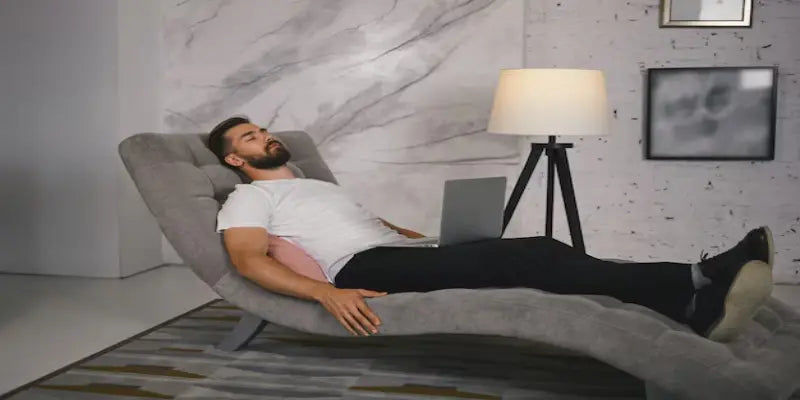
Is it Better to Sleep With or Without a Pillow?
If you are waking up with neck and back pain and you have tried out everything to get good sleep but nothing works out for you, you might be wondering if there is anything in this world that you can do to get some relief. “Should I stop using a pillow or should I buy a better one?” These are the most common questions among people suffering from cervical pain issues.
You might want to know whether sleeping without a pillow proves helpful for such chronic pain or not? In this blog, we’ll break down the pros and cons of both options to help you make the best choice for your sleep.
Sleeping with a Pillow
Comfort and Support:
Most people find that sleeping with a pillow is more comfortable. Though side sleepers are said to be the healthiest sleeping position, at times side sleepers too have to suffer through a difficult time due to the use of a wrong selection of pillow. A side sleeper needs a supportive and thick pillow that is as firm as the distance between the shoulder and neck. A pillow can support your head, neck, and shoulders, which can help you sleep better and wake up feeling refreshed.
Spinal Alignment:
Using a pillow can help keep your spine in a good position. However, sleeping without a pillow or the wrong pillow can worsen the sleep quality by bending the neck in an uncomfortable alignment. The physicians usually advise choosing the right pillow matching the sleep position. This relieves the neck pain and enhances the sleep quality by allowing the neck to position in a natural alignment.
Reduced Snoring:
Sometimes, a pillow can help reduce snoring. By keeping your head elevated, a pillow can help keep your airways open, which might make breathing easier while you sleep. A memory foam pillow can work wonders for people suffering from snoring as it can mold according to the shape of your head so keep your spine aligned and hence keep your airways open.
Sleeping without a Pillow
Natural Position:
Some people prefer sleeping without a pillow because it can allow their neck and spine to stay in a more natural position. This might be more comfortable for some people, especially those who sleep on their stomach.
However, for some stomach sleepers, a low loft or thin pillow is beneficial and reduces strain on the spine. Sleeping on the stomach, though it reduces sleep issues like snoring and sleep apnea, this position is least recommended by the physicians since it certainly dislocates the neck and head out of alignment.
Less Pressure:
Without a pillow, there’s less pressure on your neck and shoulders. This might be helpful if you have specific neck or back issues that don’t improve with a pillow. But in most cases, a memory foam pillow solves this problem and is considered as the best choice for people suffering from neck and back pain. It can adjust according to the shape of your head so it keeps your head, neck and spine in a neutral position, creating less pressure on your neck and shoulders.
Reduced Allergies:
If you're allergic to dust mites or other allergens, sleeping without a pillow might reduce your exposure to these irritants. However, sleeping without a pillow sometimes worsens the condition of the neck and back pain. It is better that you use a hypoallergenic pillow, it doesn't collect dust and allergens over time, so using a hypoallergenic pillow could help if you have allergies.
Choosing What's Best for You
Everyone is different, so what works for one person might not work for another. Try experimenting with different pillow heights and types to see what feels best for you. Think about how you sleep. If you sleep on your back or side, a pillow is often recommended. If you sleep on your stomach, you might find it more comfortable without one.
You can invest in Memory Foam Pillow from Sleepsia, it is found to be a perfect option for every sleep position. It is hypoallergenic and is great for people who are suffering from neck and back pain. It also helps in reducing snoring and helps you wake up all fresh and rejuvenated.
If you have specific health issues like neck pain or sleep apnea, it might be worth talking to a doctor. They can give you advice on the best way to sleep based on your needs.
In the end, whether you sleep with or without a pillow depends on what makes you feel most comfortable and supports your health. Pay attention to how you feel in the morning and adjust accordingly.








